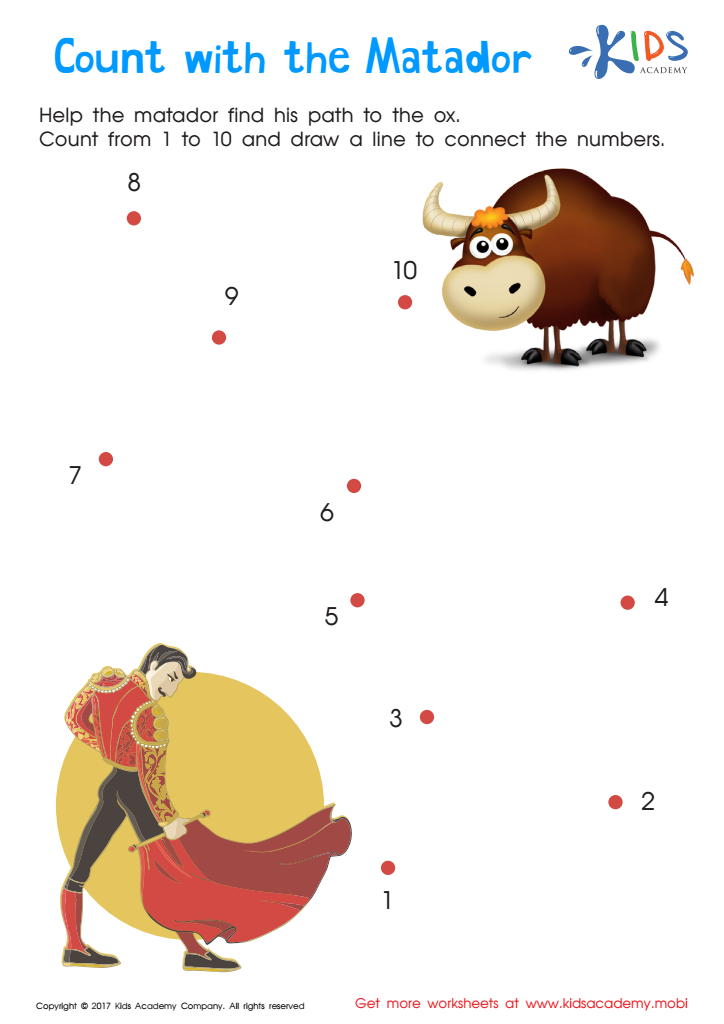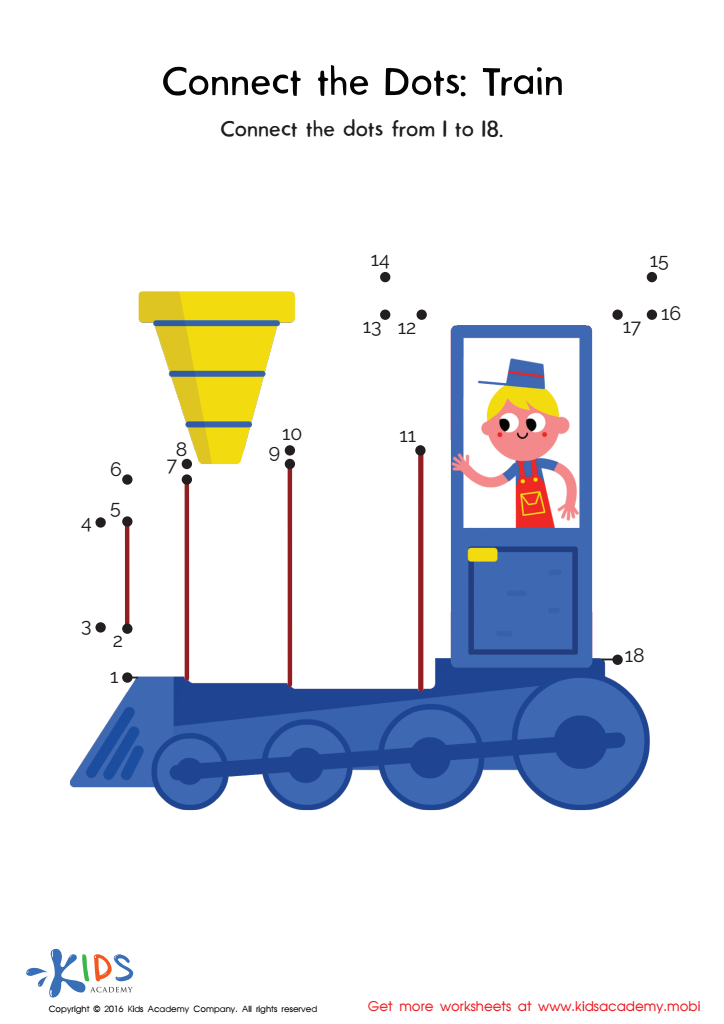Numbers 0–10 Worksheets for Ages 5-8
129 filtered results
-
From - To
Discover our engaging "Numbers 0–10 Worksheets for Ages 5-8" designed to help young learners master essential math skills. Perfect for preschool and early grade school children, these worksheets offer a variety of fun activities, including counting, number recognition, and simple addition and subtraction exercises. Each worksheet promotes cognitive development while making learning enjoyable. As educators, we understand the importance of foundational numeracy, so these resources are crafted to meet the needs of diverse learning styles. Download our printable worksheets to enhance your child's math abilities and boost their confidence in a supportive and interactive way! Ideal for home or classroom use!
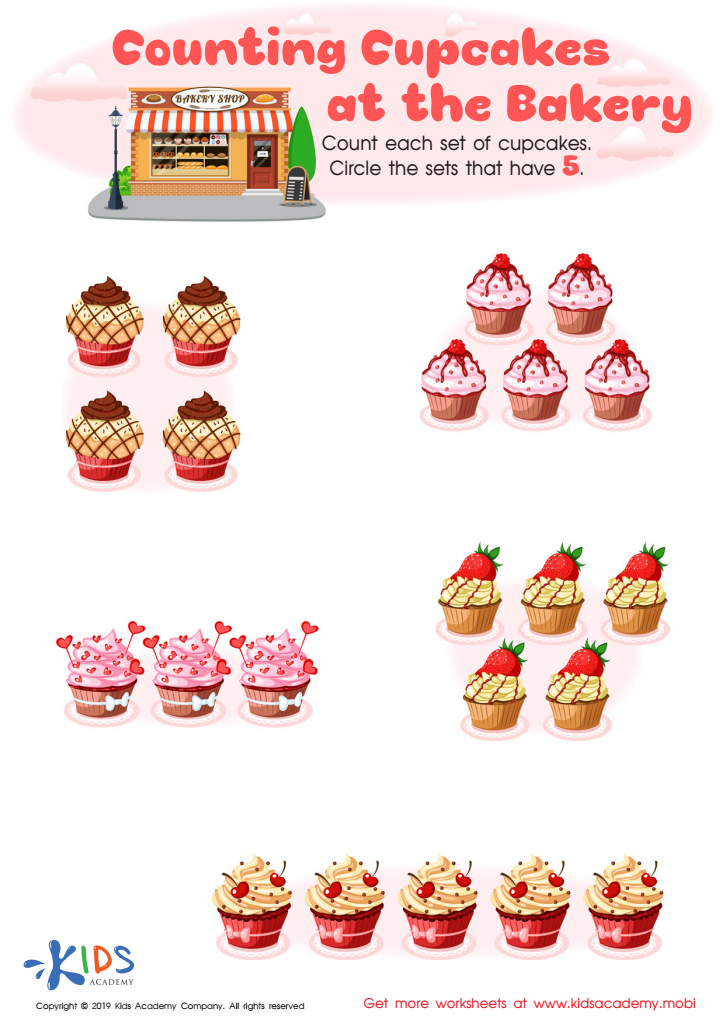

Counting Cupcakes Worksheet
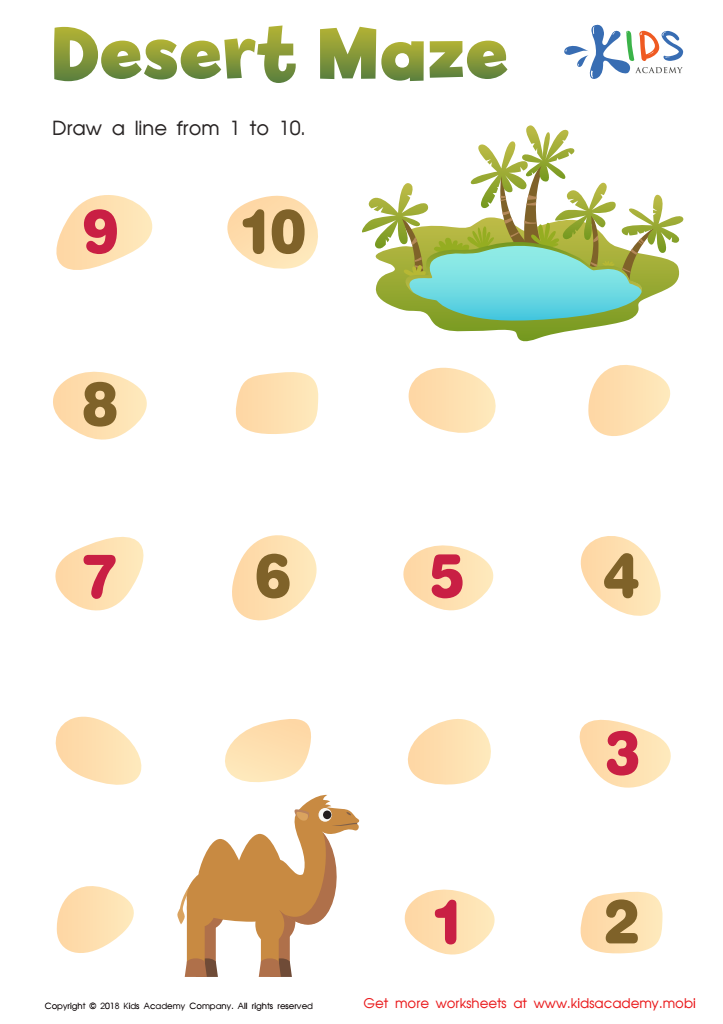

Desert Maze Worksheet
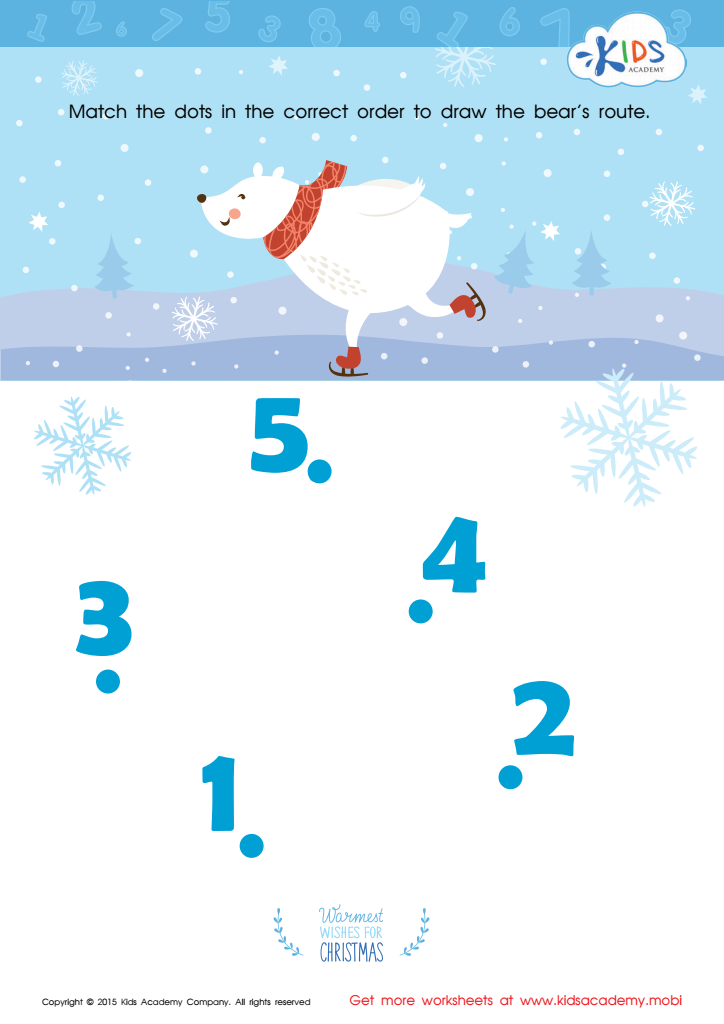

Drawing the Bear's Route by Number Worksheet
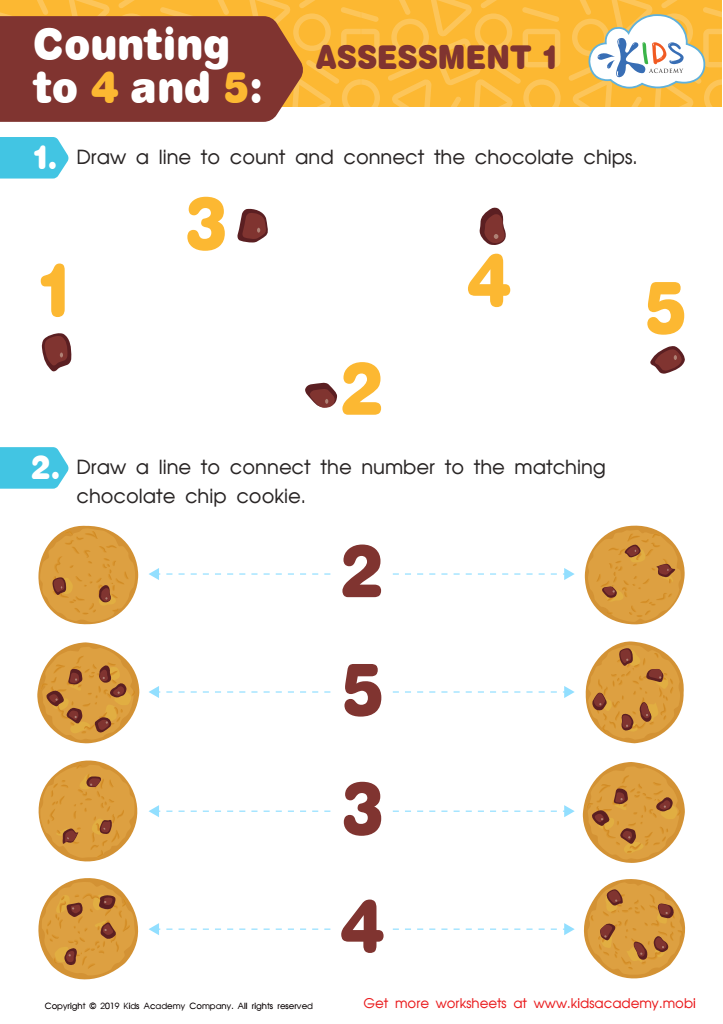

Counting to 4 and 5: Assessment 1 Worksheet
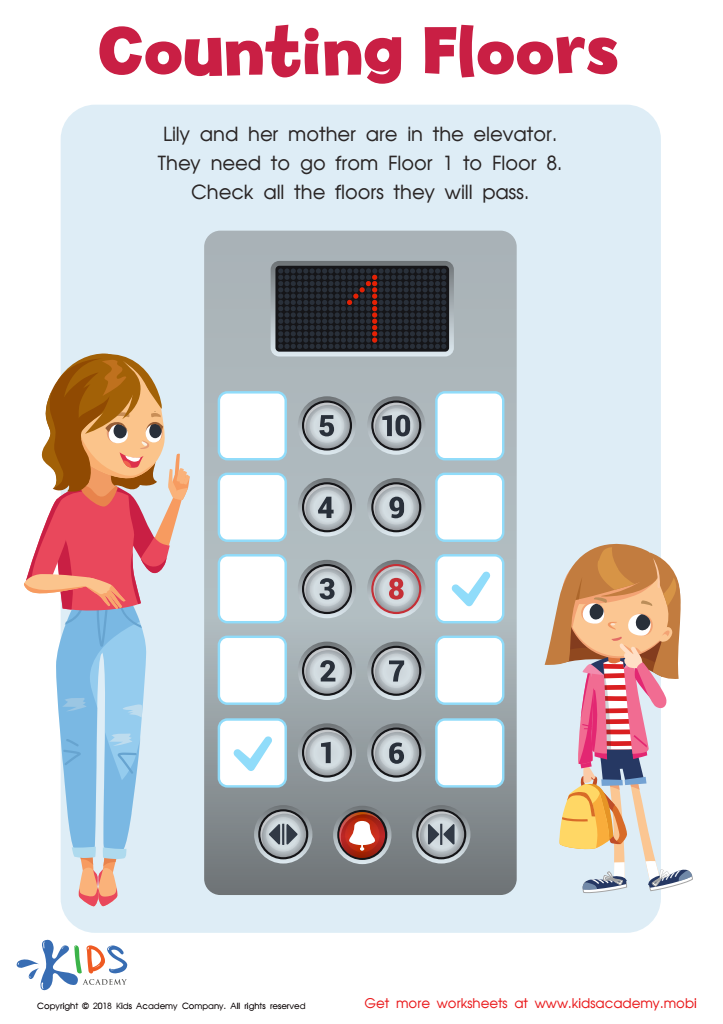

Counting Floors Worksheet
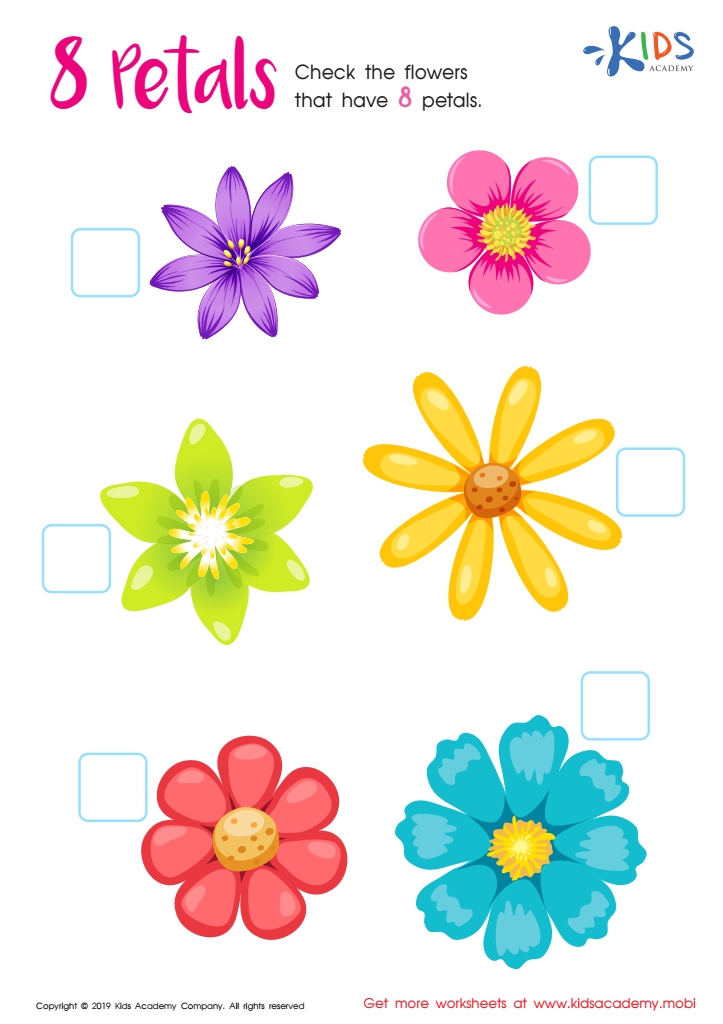

8 Petals Worksheet
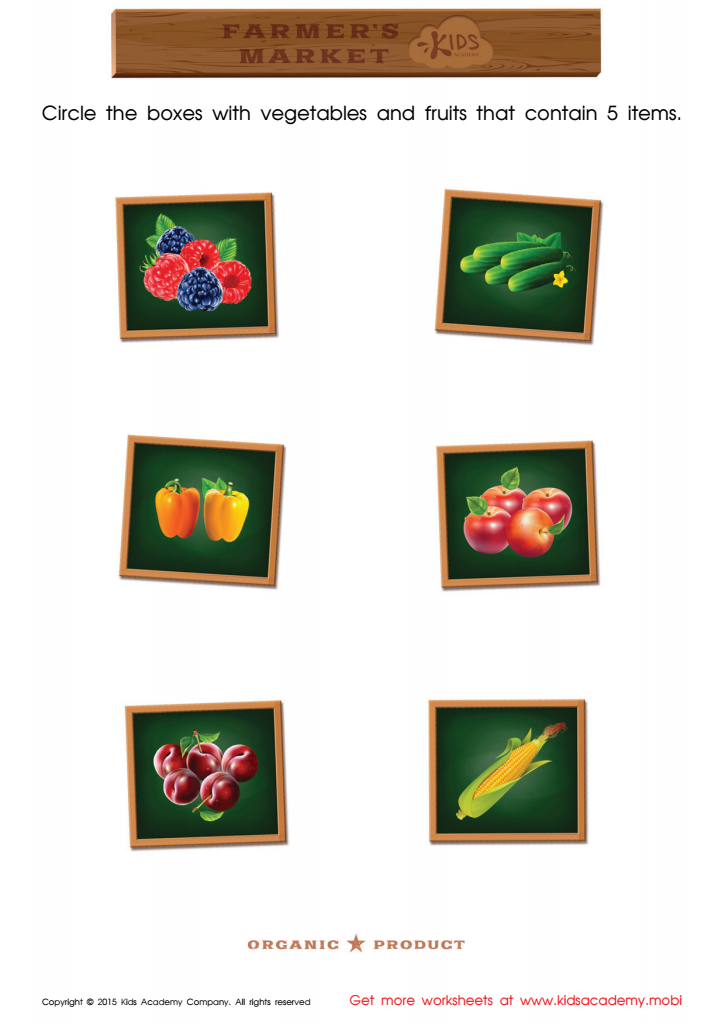

Count and Match Vegetables 1 – 7 Math Worksheet
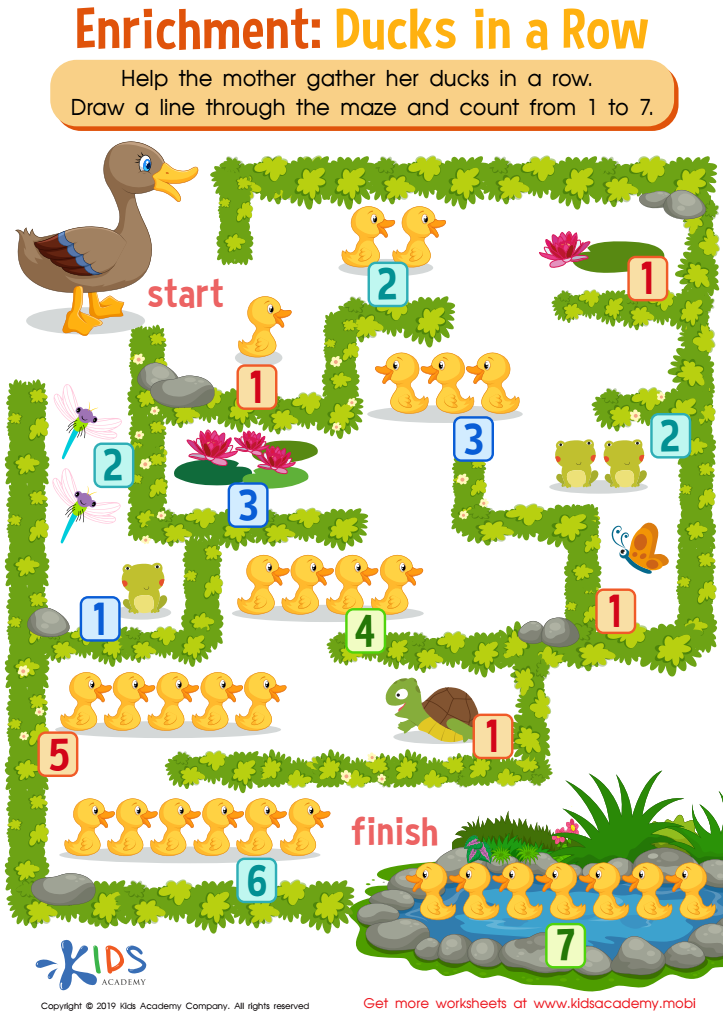

Ducks in a Row Worksheet
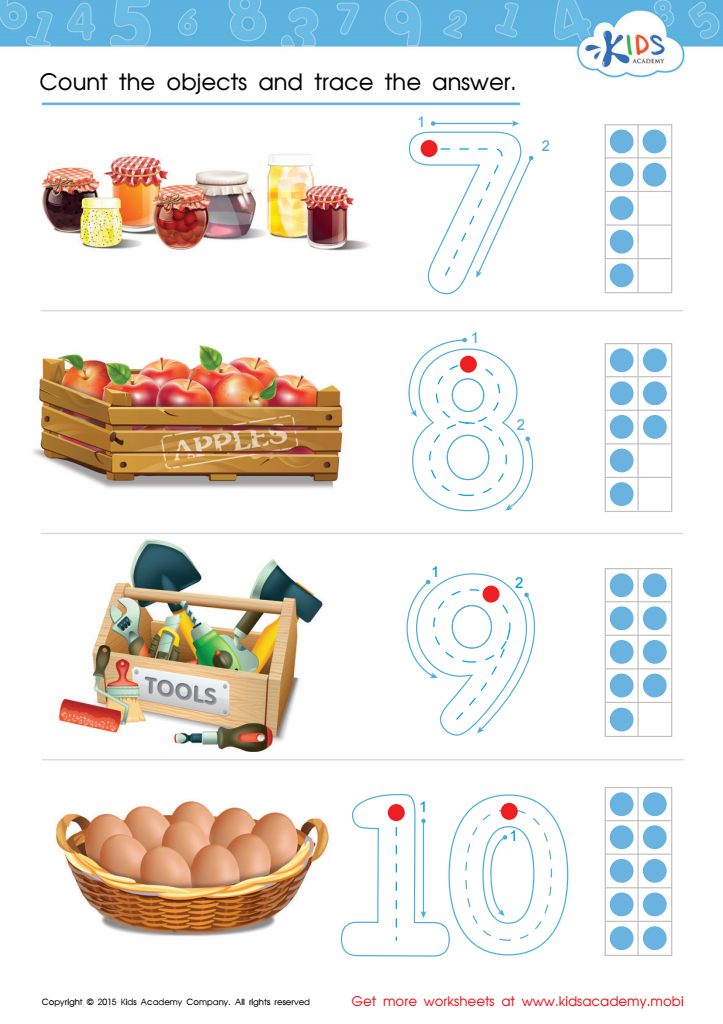

Count and Trace 7 – 10 Worksheet
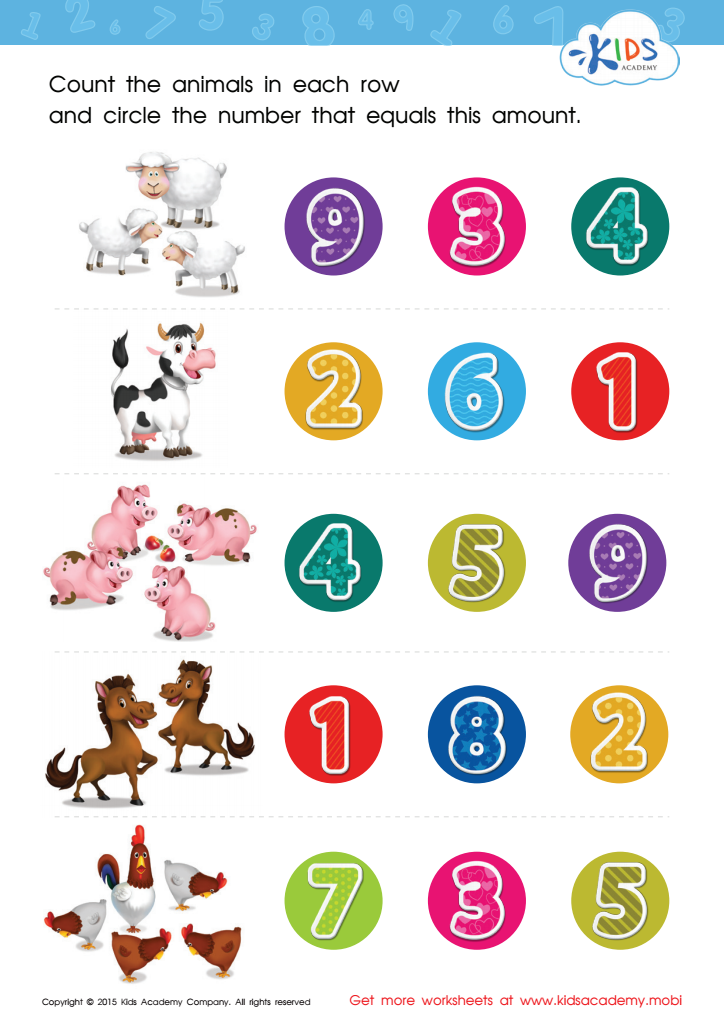

Count and Match 1 – 5 Math Worksheet
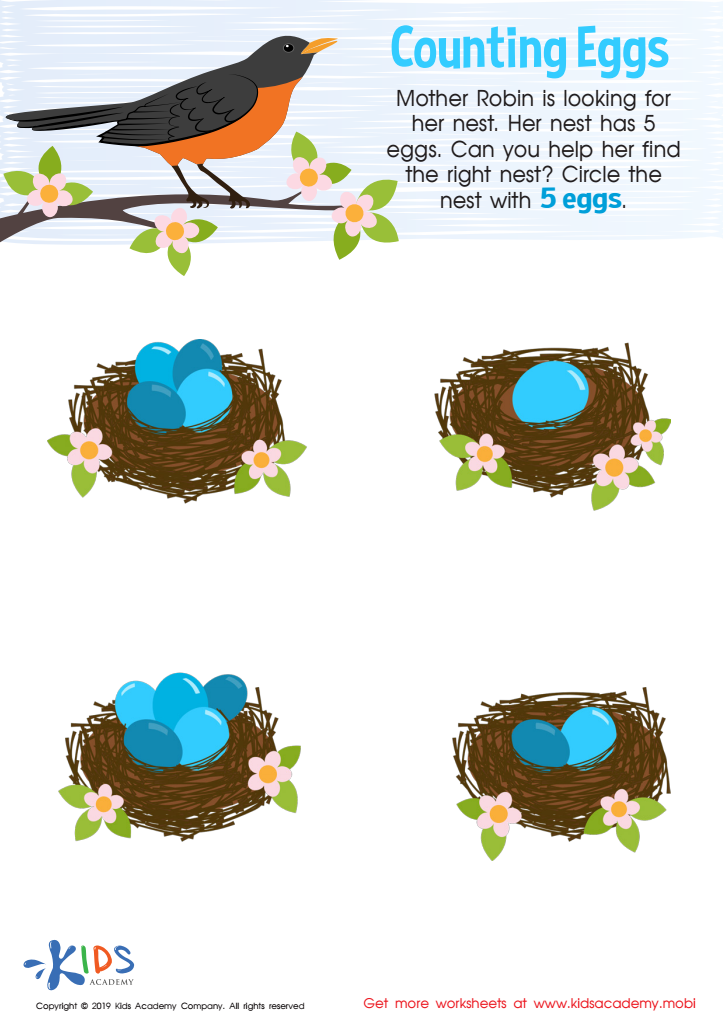

Counting Eggs Worksheet
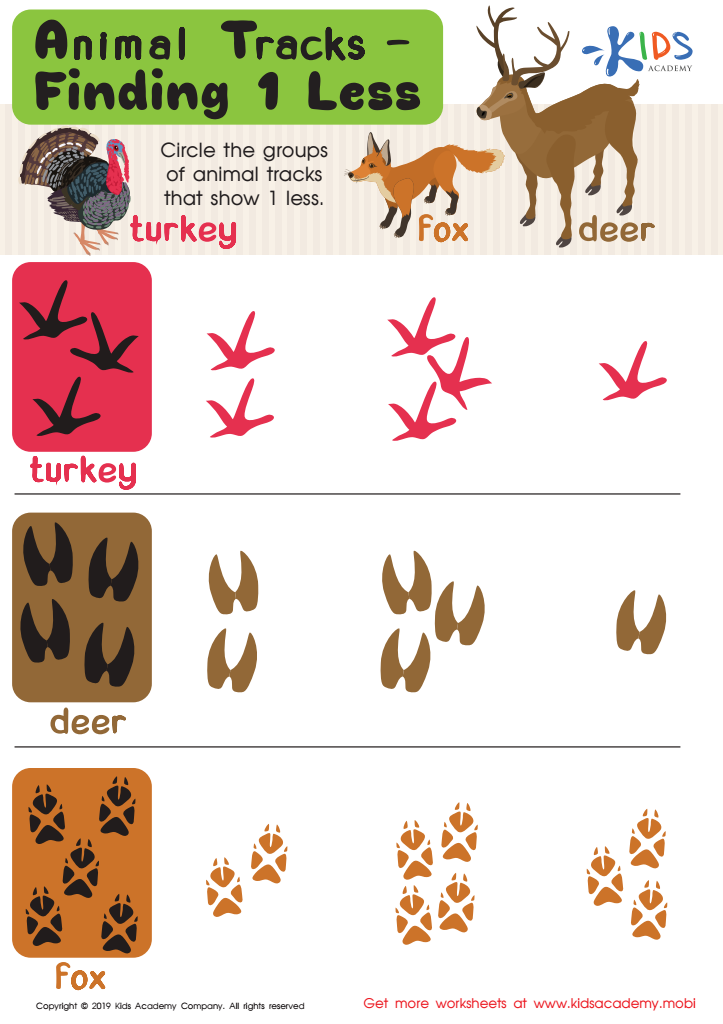

Animal Tracks: Find 1 Less Worksheet
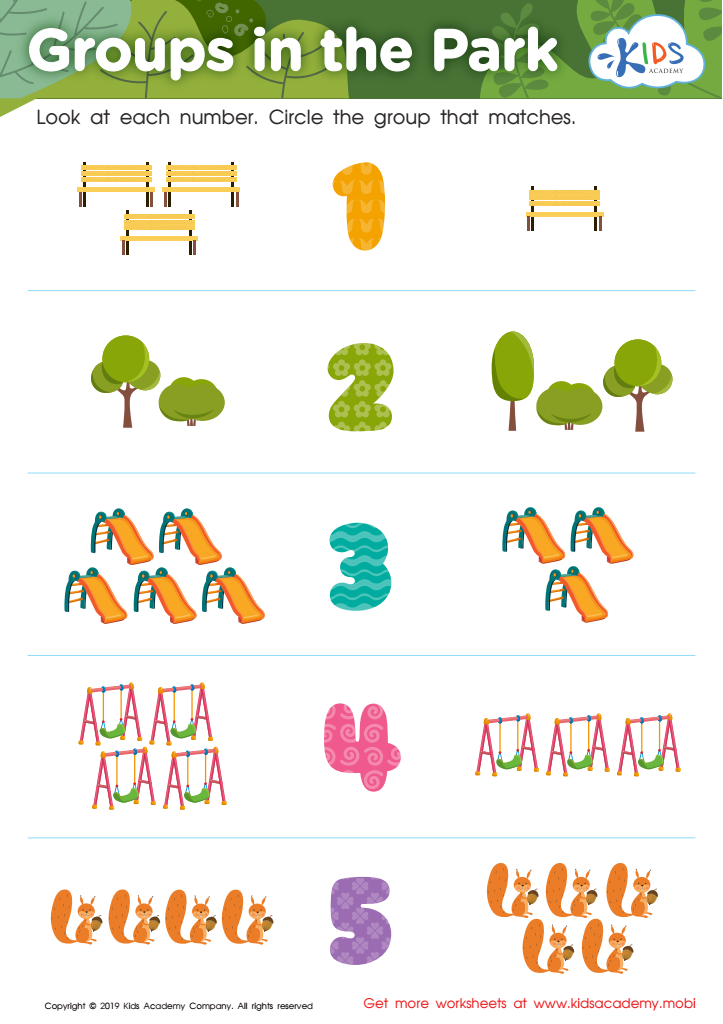

Groups in the Park Worksheet
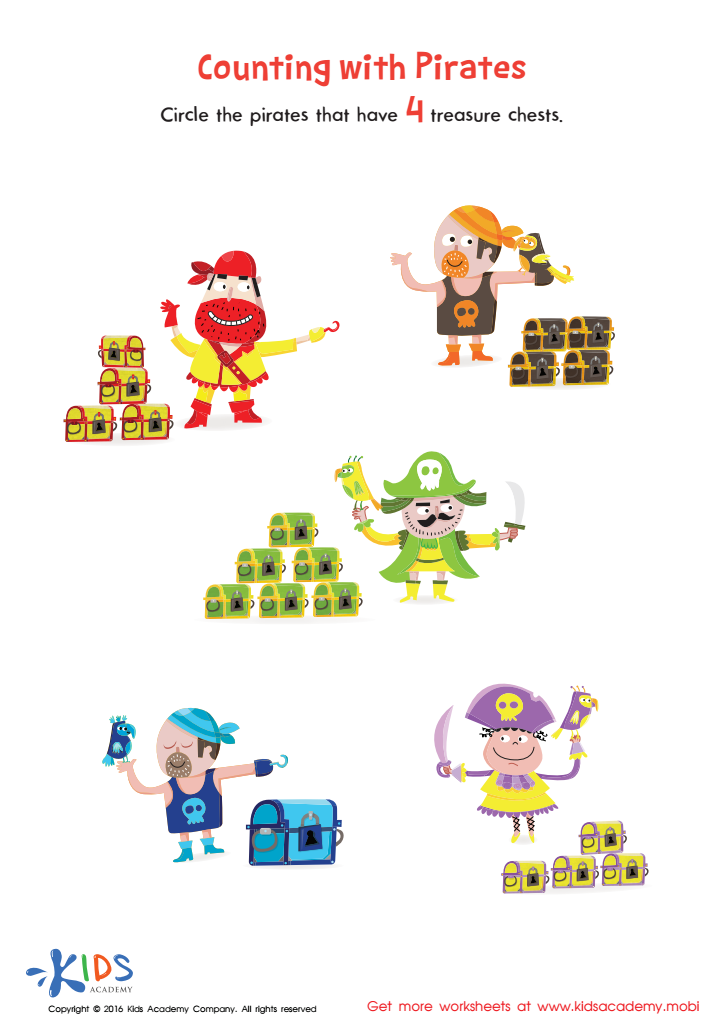

Counting With Pirates Worksheet
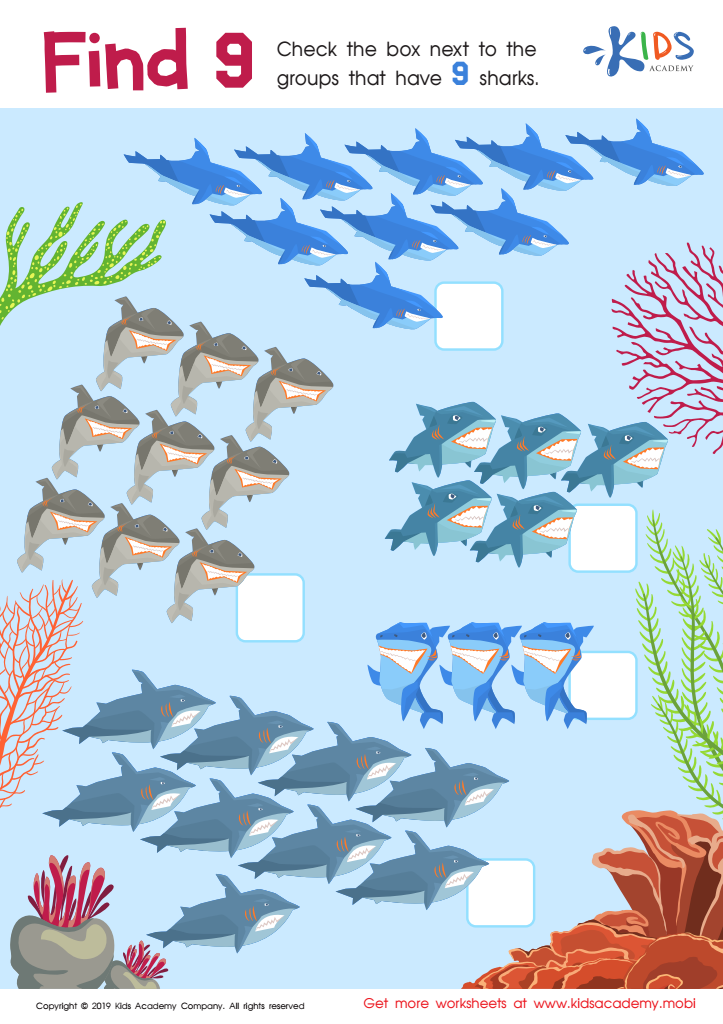

Find 9 Worksheet
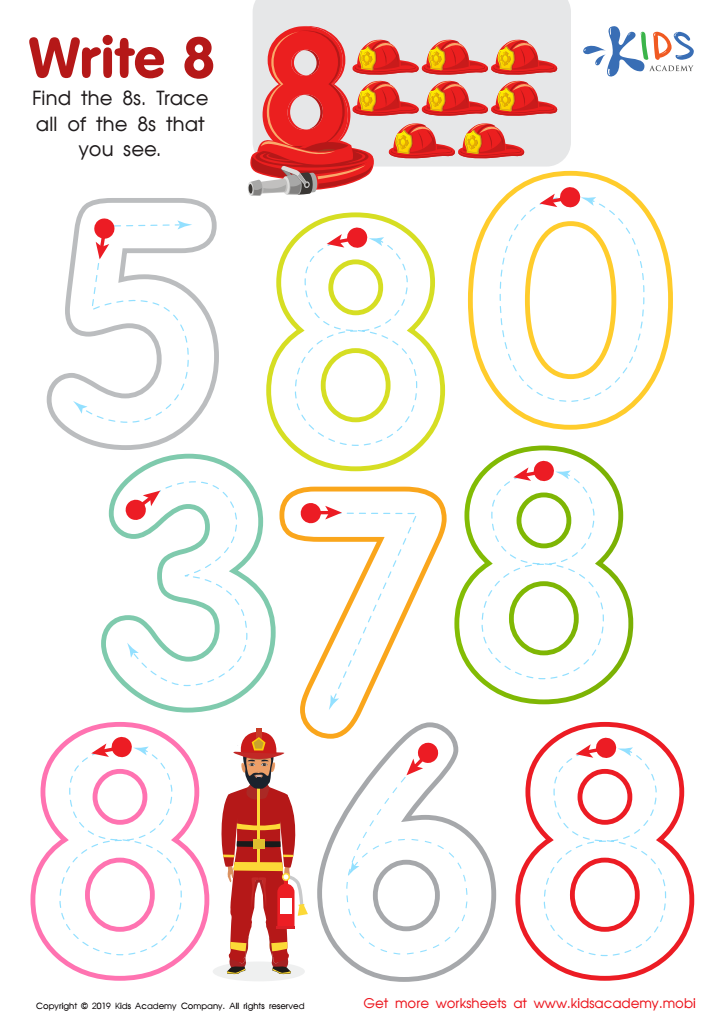

Write 8 Worksheet
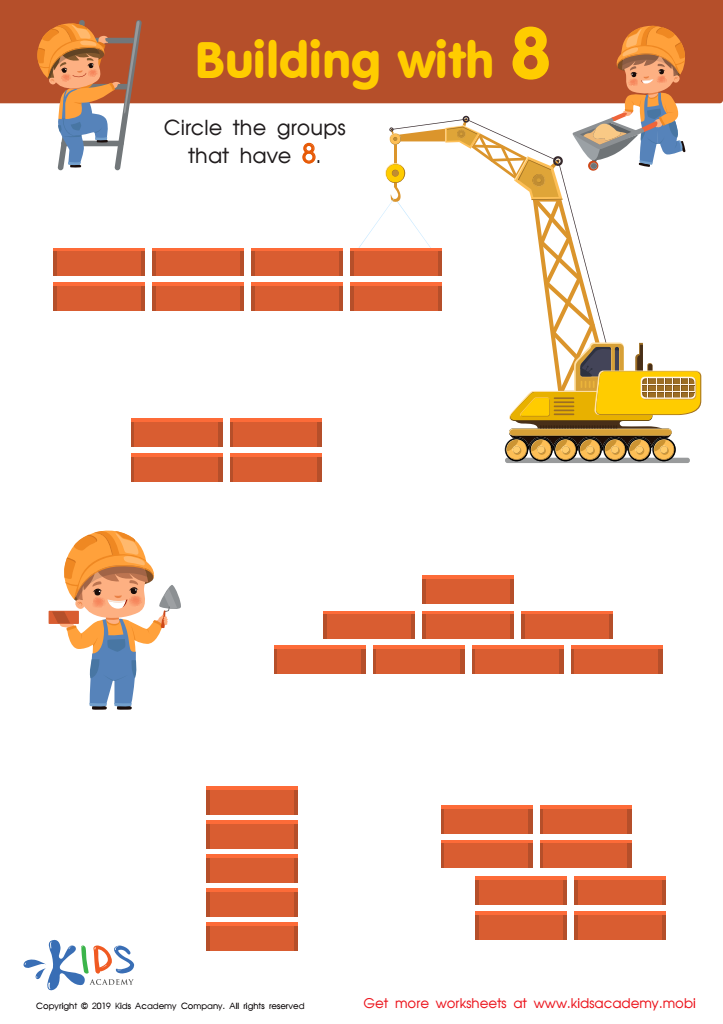

Building with 8 Worksheet
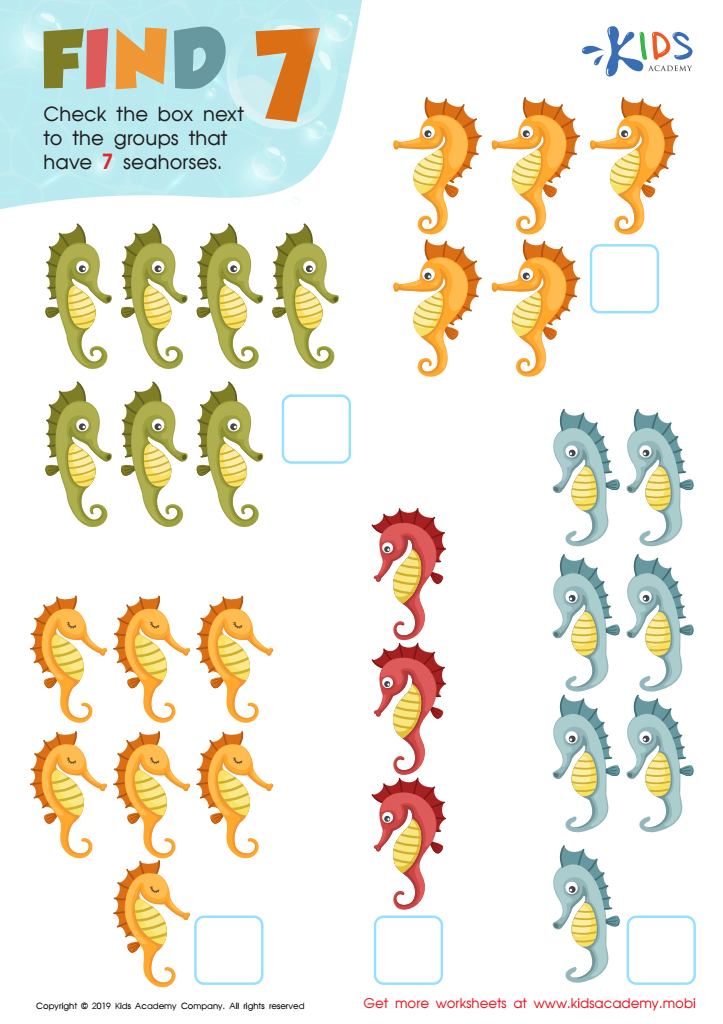

Find 7 Worksheet
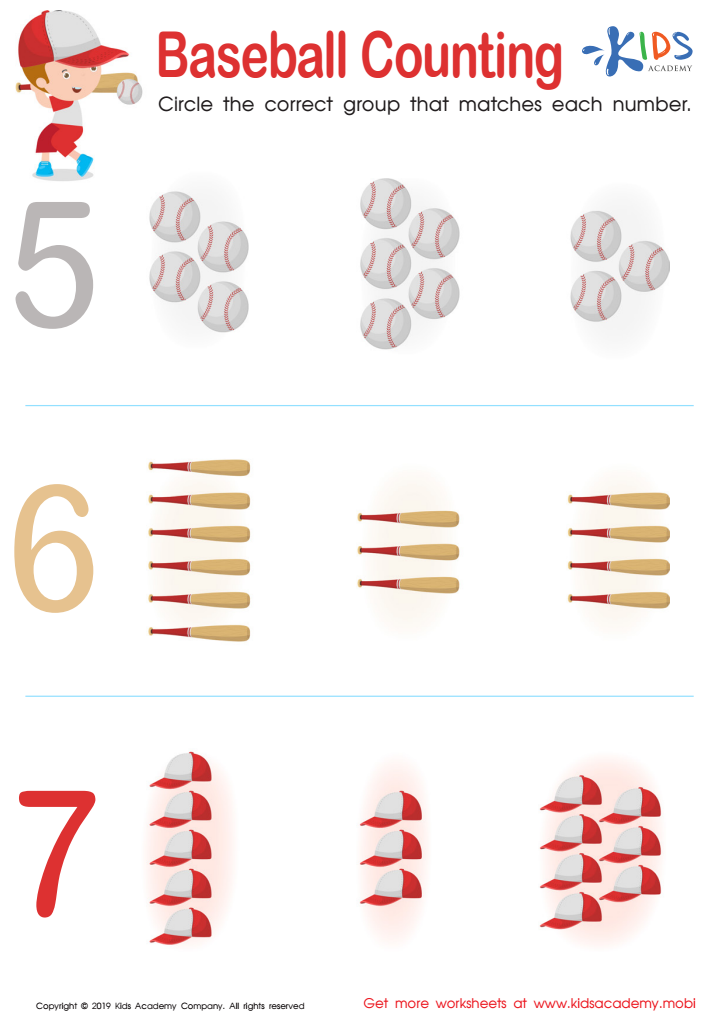

Baseball Counting Worksheet
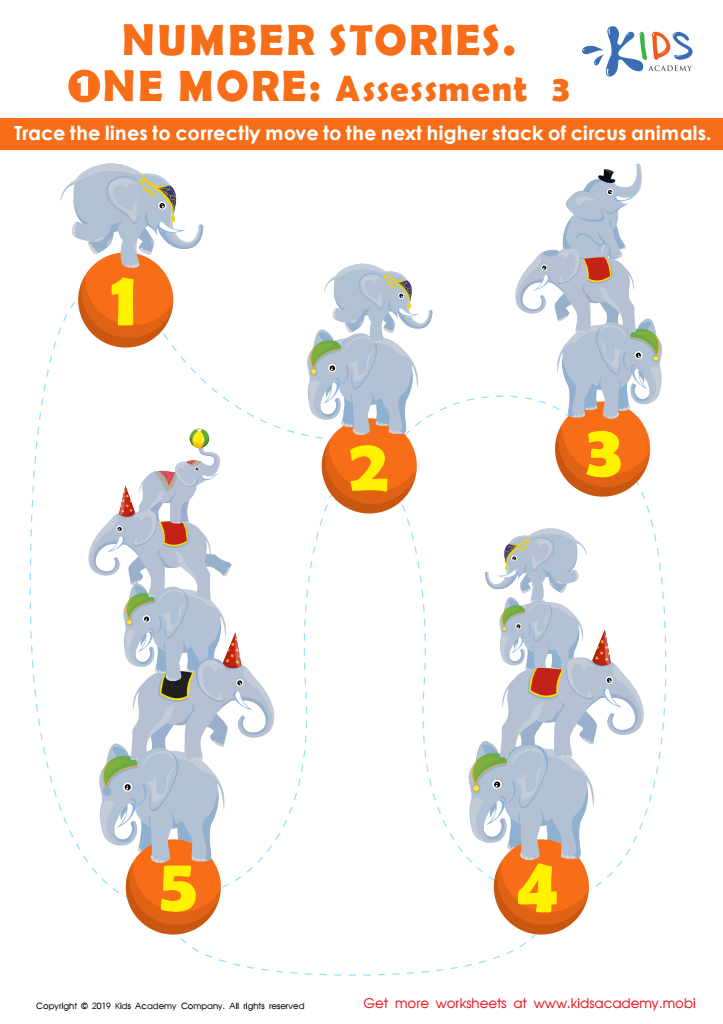

Number Stories One More: Assessment 3 Worksheet
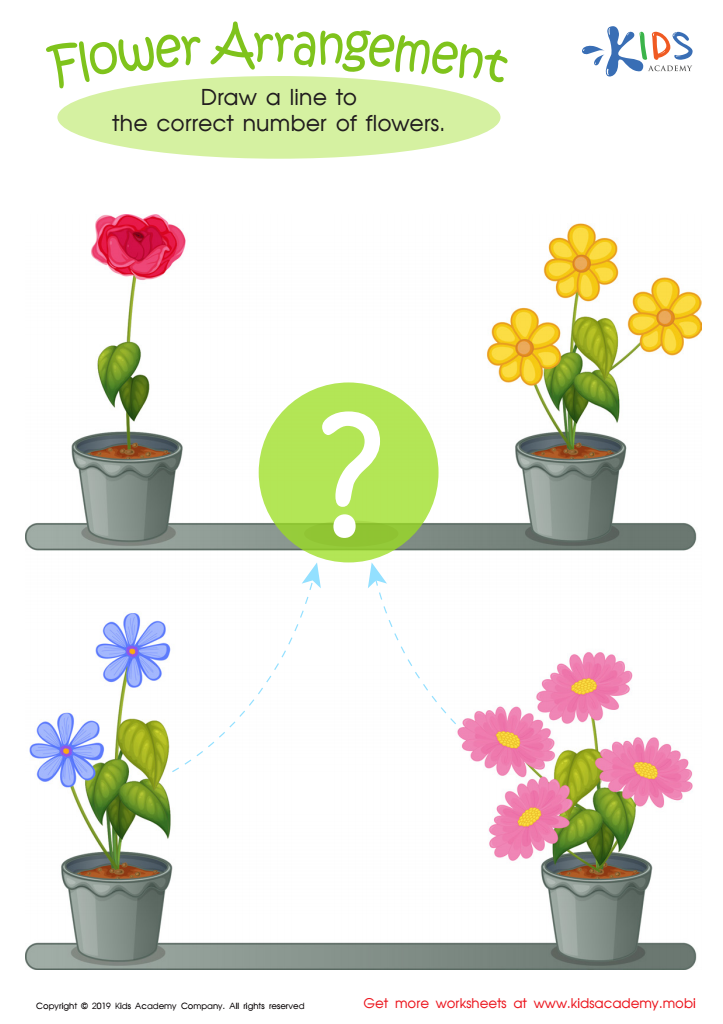

Flower Arrangement Worksheet
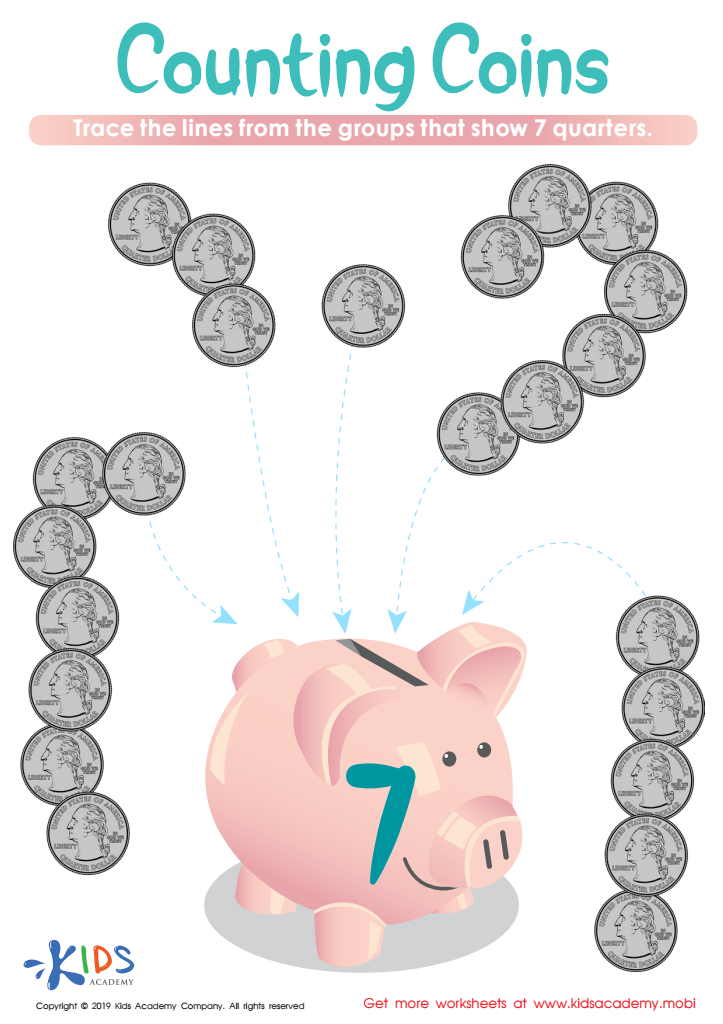

Counting Coins Worksheet
Understanding numbers 0–10 is crucial for children aged 5-8, as it lays the foundation for all future mathematics learning. This early stage of numerical comprehension supports cognitive development and aids in essential life skills, such as counting, identifying quantities, and making comparisons. Mastery of numbers form the basis for more complex mathematical concepts, including addition, subtraction, and eventually multiplication and division.
Teachers and parents play a vital role in nurturing this developmental milestone by creating a supportive learning environment. Engaging with numbers through fun activities, games, and everyday situations not only increases numerical fluency but also fosters a positive attitude towards math. Familiarity with 0–10 helps children relate numerical concepts to their daily lives, enhancing their confidence and interest in learning.
Additionally, early number recognition can contribute to improved problem-solving skills, allowing children to navigate real-world challenges more effectively. It’s essential for parents and caregivers to realize that building a strong mathematical foundation will have lasting effects on their children’s educational journey, influencing academic performance and opportunities in the future. By emphasizing the importance of numbers 0–10, adults can help shape proficient, capable learners equipped for success in an increasingly numerical world.
 Assign to My Students
Assign to My Students




